Mozambique: Water resources crucial for economic transformation
Terrorism and economy are Mozambique’s challenges this year, consultant says

in file CoM
Although there is still a lot of work to do, Mozambique, as well as Angola, is among the five African countries most recommended by the consultancy EXX Africa for investment in 2019. Investment in Angola, Ethiopia, Ghana and Mauritania is also recommended in its “Africa Investment Risk Report 2019” report, which Lusa has seen.
“It may or may not be surprising that the largest African economies – Nigeria, South Africa and Egypt – do not appear in the selection of the top five countries to invest in,” the report quips. These five have featured previously but now have country-specific issues, such as strongly contested elections in South Africa and Nigeria, and Egypt’s ‘cruising speed’.
Challenges in Mozambique
Although it appears on this list, Mozambique has some challenges, according to the consultant, such as the October elections, and its capacity to respond to the terrorist attacks in the north of the country and find a lasting resolution to the problem of the ‘hidden debt’.
“Gas revenues will be crucial to the third objective,” analysts say, adding that “positive developments in natural gas are increasingly motivating a debt restructuring and a return of donor involvement”.
For EXX Africa, the return of the Mozambican government to the negotiating table with creditors, having agreed on a preliminary proposal for sovereign debt restructuring in November, “is being motivated by the government’s strong desire to re-engage with the IMF, because the state needs billions of dollars to finance its own participation in gas concessions”.
Nyusi’s “trump card”
In an interview with Lusa, researcher Fernando Jorge Cardoso also addresses the terrorist attacks in the north of the country, asserting that, contrary to common belief, the attacks in Cabo Delgado “did not begin in 2017”.
What began in 2017, he explains, were “some acts of decapitation, which had strong repercussions in media terms, because at the same time we were talking about large gas investments in the area”.
According to Cardoso, the attacks are orchestrated by “a sect within Islam which has been active in the region for about two decades”. More specifically, “an Islamic organisation with a more Wahhabi, more Salafist version, of Islam”.
Cardoso, the coordinator of Strategic Studies and Development of the Marquês de Valle Flôr Institute and researcher at the ISCTE/IUL Centre for International Studies, says “internal problems in the interpretations of Islam” led to the attacks.
Cardoso emphasizes the importance of Filipe Nyusi’s government resolving the problem in this election year. “There will be elections in October and the trump card that President Nyusi could possess is solving the problem in the northeast. “But this is complicated, because it involves coordinating action with the locals. It will have to be an act of strength, no doubt, but of intelligent strength,” Cardoso concludes.


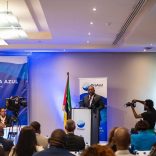
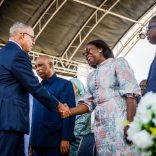

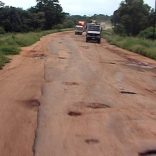
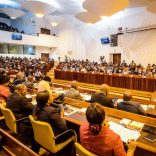
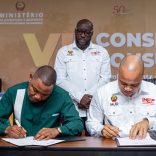




Leave a Reply
Be the First to Comment!
You must be logged in to post a comment.
You must be logged in to post a comment.